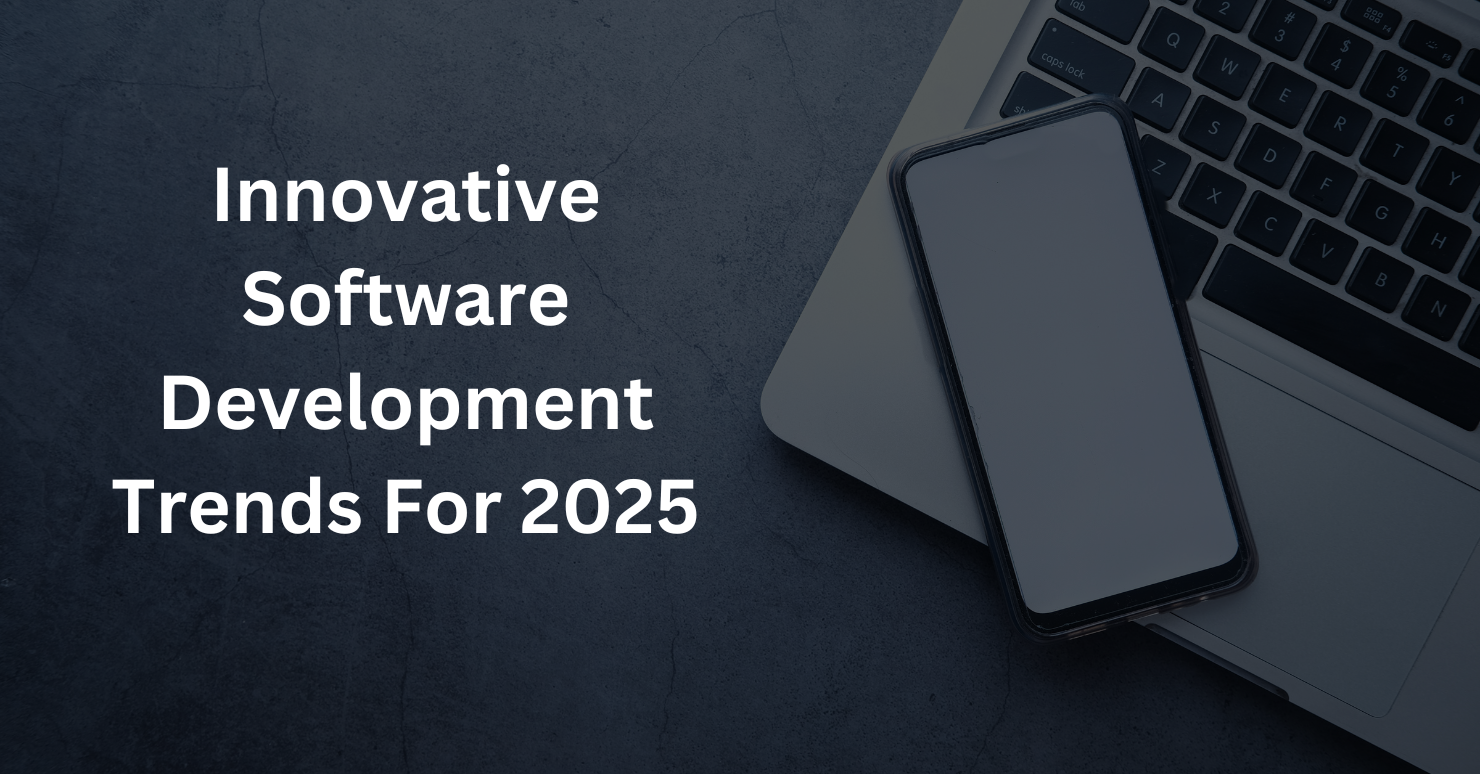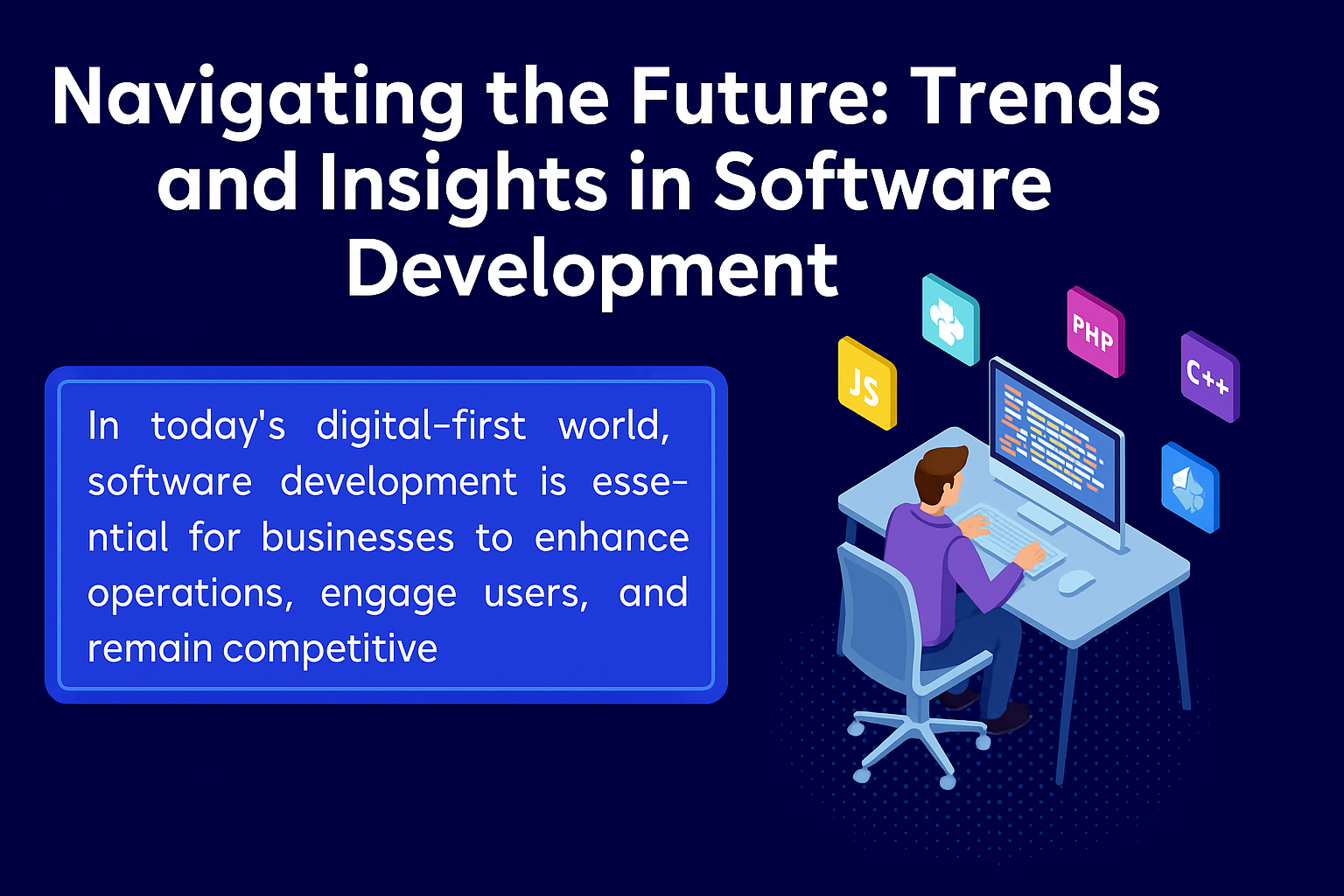Innovative Software Development Trends For 2025
The software industry is experiencing change at present.
Generative AI and no-code apps are rapidly transforming the way we design, create, and manage software. In the near future, where will technology and software lead us? Let’s get started.
This article zeroes in on the most influential software development trends, from cloud integration to AI-driven development, giving tech professionals the foresight to innovate and excel. Here’s what you need to know about the developments transforming software engineering.
These are the top current trends in software.
- AI Development
The importance of artificial intelligence is growing every day. It works in practically every field. It is widely used in software development by various organizations and well-known professionals.
AI in software development may eventually autonomously debug code before shipping.
AI tools not only support software development but also actively enhance procedures in a variety of sectors. - Low-Code and No-Code App development
Developing software can be a costly endeavor. However, the emergence of low-code and no-code platforms is transforming the software development landscape by making it more accessible and efficient.
Low-code platforms require minimal coding knowledge, enabling users to create applications to specific requirements with only a basic understanding of coding. On the other hand, no-code platforms empower users to build applications by using a visual interface to drag and drop pre-built code blocks, eliminating the need for technical expertise.
This innovative approach is gaining traction, and we believe low-code and no-code development will become a mainstream trend in the future of software creation.
There are various no-code/low-code app development tools such as Flutterflow, Buildship, Bubble, and more that can be used to develop an app. However, Flutterflow is backed by Google making it the most advanced and secure low-code app development platform. The Flutterflow pricing isn’t high either, which attracts more users. However, it offers custom feature integration which can be done by hiring Flutterflow developers. - Cloud Computing
Once a trendy term, cloud computing is now a key component of software development. The cloud was the ideal tool for businesses that needed to change and adapt to the higher demands of the “new normal.” There has never been a greater need for cloud-native software engineers because of this industry’s explosive growth. - Use of Blockchain In Software Development
Technology is also influencing blockchain in the software development sector. Businesses worldwide are implementing blockchain solutions. Cryptocurrencies and financial departments presently use blockchain technology the most. It might, however, soon find new uses in software development.
Technology also impacts the software development sector. Businesses around the world are implementing blockchain. Currently, financial departments and cryptocurrency platforms use blockchain technology most commonly. It might, however, soon find new uses in software development. - Malicious Software Development
In the upcoming years, cybersecurity is probably going to continue to be a big worry. Experts anticipate that ransomware will become more dangerous.
This implies that companies will be searching for the best resources to safeguard their assets. Devastating attacks have occurred in recent years. Hackers have targeted large energy firms, hospitals, and government organizations in the United States. - Progressive Web Apps
Users of smartphones demand a dependable and quick app experience, yet they frequently don’t want to download apps since they take up too much storage. Another noteworthy development trend in software is Progressive Web Apps (PWAs). PWAs, which are a cross between a mobile app and a standard web page, provide an app-like experience on the web with features like push notifications, offline access, and seamless operation.
Summary
That concludes the eleven new trends in software development currently emerging. Cloud computing, automation, and connectivity are likely to continue gaining traction rapidly. However, these advancements come with some drawbacks.
The software development process is evolving due to several trends, including the rise of cloud and edge computing, along with the revolutionary impact of AI and ML. The sector is also experiencing changes from the growth of PWAs, the potential effects of quantum computing, the evolving vocabulary of innovation, and the increasing emphasis on cybersecurity. Significant trends shaping the future of software development include the democratization of development through low-code/no-code platforms, the introduction of new dimensions through virtual and augmented realities, and the shift toward remote labor. As a leading mobile software development company, Appic Softwares is at the forefront of these trends, continuously adapting to these innovations to deliver cutting-edge solutions to its clients.














Post Comment